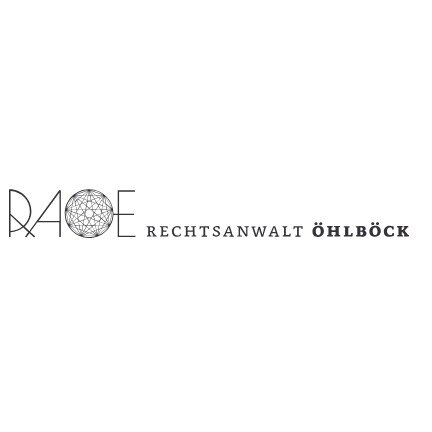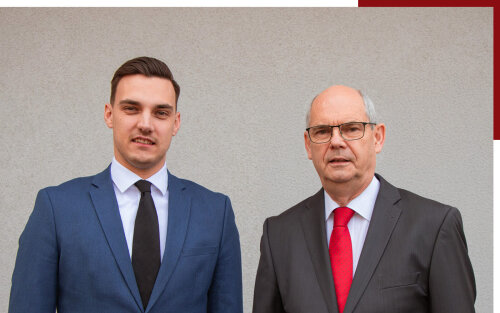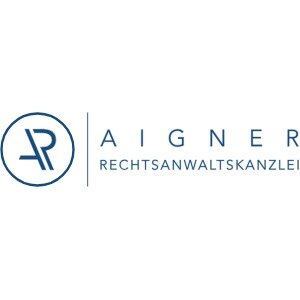Best Education Law Lawyers in Austria
Share your needs with us, get contacted by law firms.
Free. Takes 2 min.
Or refine your search by selecting a city:
List of the best lawyers in Austria
About Education Law in Austria
Education Law in Austria is a complex field that governs the educational system within the country. It encompasses regulations regarding the structure and administration of educational institutions, the rights and duties of students and teachers, inclusion and diversity in education, and more. The Federal Ministry of Education, Science and Research primarily oversees laws related to education, ensuring compliance with national and international standards. This field of law aims to guarantee high-quality education for all individuals and protect the rights of those involved in the educational sector.
Why You May Need a Lawyer
There are several situations where individuals or institutions may require legal assistance in Education Law:
- Dispute Resolution: Conflicts may arise between students and educational institutions concerning disciplinary actions, grading disputes, or dismissals.
- Special Education Needs: Ensuring appropriate accommodations for students with special needs can involve navigating complex regulatory frameworks.
- Discrimination Issues: Cases of perceived discrimination based on race, gender, or disability within educational settings may require legal intervention.
- Compliance and Governance: Educational institutions may need legal advice to ensure compliance with local and national laws, as well as regulations regarding operational licenses and staff requirements.
- International Students: Legal guidance may be necessary regarding visas, language requirements, and recognition of foreign qualifications.
Local Laws Overview
Austrian Education Law is primarily governed at the federal level, but the implementation often falls under the jurisdiction of individual states (Bundesländer). Some key aspects include:
- Compulsory Education: In Austria, school attendance is mandatory from age six to fifteen. The structure includes primary, lower secondary, and higher secondary education.
- Inclusion and Diversity: Laws require schools to accommodate students with diverse backgrounds and special needs, promoting an inclusive educational environment.
- Curriculum and Standards: The federal government sets core educational standards, but states have the flexibility to adapt curricula to regional needs.
- Teacher Qualifications: Teachers in Austria must fulfill specific education and certification criteria set by law.
Frequently Asked Questions
What is the legal school starting age in Austria?
In Austria, children are legally required to start school in the year they turn six.
Are there laws governing homeschooling in Austria?
Yes, homeschooling is permitted, but it must be registered and comply with specific educational requirements.
How are special education needs addressed by law?
Special education needs are accommodated under federal and state laws, mandating personalized educational plans and support.
What are the requirements for international students?
International students must secure proper visas and meet language proficiency and academic credential requirements to study in Austria.
What legislation exists to prevent discrimination in schools?
Austria enforces anti-discrimination laws that protect students from discrimination based on race, gender, disability, and other criteria.
How does one address a school-related grievance legally?
Grievances are typically addressed through internal complaint processes, with legal action considered if these are unsuccessful or unjust.
What is the role of school boards in Austria?
School boards in Austria assist in managing schools, ensuring they follow educational guidelines and meet community needs.
How are teacher qualifications regulated?
Teacher qualifications are mandated by federal law, requiring specific academic credentials and practical training.
What are the rights of students in Austrian schools?
Students have the right to appropriate education, protection from discrimination and abuse, and participation in school governance.
How are disciplinary actions handled legally in schools?
Disciplinary actions must follow the guidelines set by law, ensuring procedural fairness and the opportunity for appeal.
Additional Resources
For those seeking more information or legal advice in Education Law, the following resources may be helpful:
- The Federal Ministry of Education, Science and Research Austria
- The Austrian Ombudsman Board
- The Austrian Student Union (ÖH)
- Local educational authorities (Landesschulräte)
- Non-Governmental Organizations (NGOs) focusing on education and children's rights
Next Steps
If you require legal assistance in Education Law, consider the following steps:
- Consult a Lawyer: Seek out attorneys specializing in Education Law for individualized advice and representation.
- Contact Relevant Authorities: For initial guidance, contact the Federal Ministry of Education or local educational authorities.
- Gather Documentation: Prepare all relevant documents related to your legal concern, such as correspondence, agreements, and evidence.
- Research and Prepare: Educate yourself about your rights and responsibilities under Austrian Education Law to better understand your position.
Lawzana helps you find the best lawyers and law firms in Austria through a curated and pre-screened list of qualified legal professionals. Our platform offers rankings and detailed profiles of attorneys and law firms, allowing you to compare based on practice areas, including Education Law, experience, and client feedback.
Each profile includes a description of the firm's areas of practice, client reviews, team members and partners, year of establishment, spoken languages, office locations, contact information, social media presence, and any published articles or resources. Most firms on our platform speak English and are experienced in both local and international legal matters.
Get a quote from top-rated law firms in Austria — quickly, securely, and without unnecessary hassle.
Disclaimer:
The information provided on this page is for general informational purposes only and does not constitute legal advice. While we strive to ensure the accuracy and relevance of the content, legal information may change over time, and interpretations of the law can vary. You should always consult with a qualified legal professional for advice specific to your situation.
We disclaim all liability for actions taken or not taken based on the content of this page. If you believe any information is incorrect or outdated, please contact us, and we will review and update it where appropriate.
Browse education law law firms by city in Austria
Refine your search by selecting a city.












